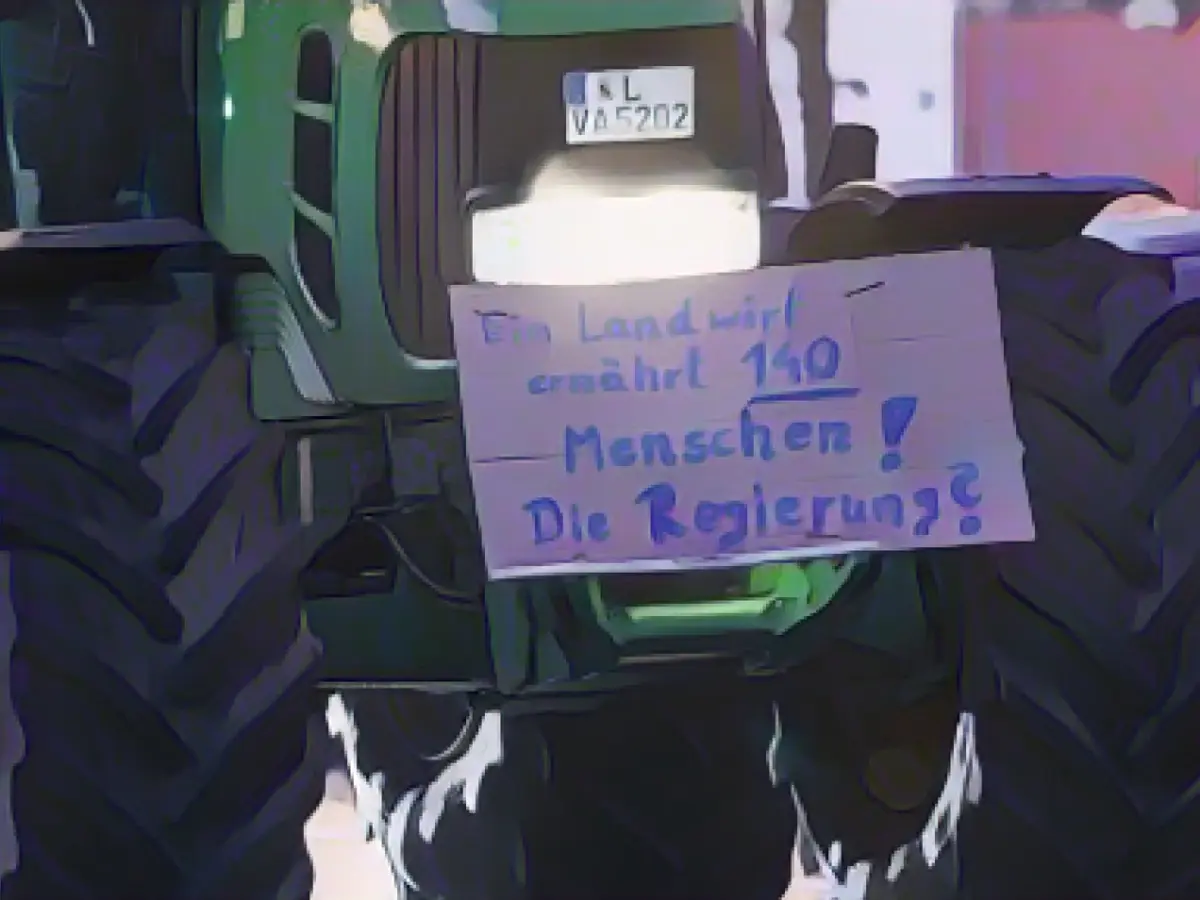Farmers in Leizpig and Chemnitz, numbering around 800, took to their tractors last Monday to voice their discontent against the traffic light coalition's proposed scrapping of tax breaks on agricultural diesel and vehicles. The spokesperson for the association "Land schafft Verbindung", which organized the demonstration, Marc Bernhardt, expressed their intent to reverse this decision. So far, farmers had been partially reimbursed for energy tax on diesel, and agricultural and forestry vehicles were exempt from vehicle tax.
The procession circled the city center without incident, causing minimal disruptions to traffic. According to a police spokesperson, the march concluded peacefully in front of the Völkerschlachtdenkmal monument.
Franziska Schubert, leader of Green Party in the Saxony state parliament, justified the need for phasing out climate-harming subsidies but criticized the FDP for unwillingness to make alternative tax adjustments.
The agricultural policy spokesperson for the AfD parliamentary group stressed the mounting pressures on farmers. Fertilizer restrictions, set-aside of arable land, and foreign imports, according to the spokesperson, make it difficult for farmers to compete internationally.
Additional Insights
- Urban-Rural Divide: The farmers' protests underscore an ongoing urban-rural divide in Germany. Farmers feel undervalued and overlooked by the government, claiming that rural communities bear the brunt of austerity measures while city dwellers benefit from those subsidies.
- Mounting Regulations: Germany's agricultural sector has been facing stringent regulations and requirements for years. Farmers argue that these restrictions, in addition to tax increases, are choking their industry, making it difficult for them to survive.
- Competitive Pressure: The farmers' complaints of cheaper imports from abroad reflect the amalgamation of supply and demand dynamics. They insist that all agricultural products, both domestic and imported, should conform to the same social, environmental, and animal welfare standards.
- Historical Frustrations: The farmers' discontent is not confined to the recent proposals but also reflects years of frustration with the government's agricultural policies. They assert that politicians have failed to empower the farming community, resulting in over 980 protests against subsidy cuts and tax hikes.
- Immediate Financial Risks: Farmers are concerned about the immediate financial impact of tax increases. They argue that they may not be able to sustain the additional cost, affecting their ability to operate efficiently. The chairperson of the German Farmers' Association warned politicians that the proposed tax hikes were "too much" and that the demonstrations were a direct message of their rejection.







